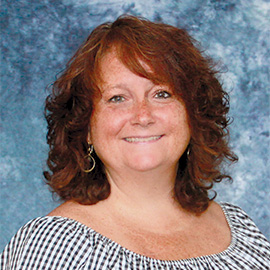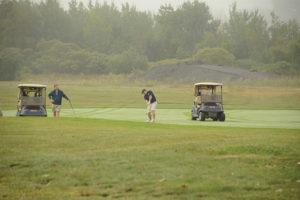By Marta J Silakka RN, BSN, CCM, COHN-S, Nurse Case Manager – NHADA-WCT
A common question we get here at NHADA — WCT is, “why is my injured worker getting bills for his workers’ comp injury” or “my employees’ treatment bills went to collections; why didn’t you pay them?” This is, unfortunately, an inquiry with a common denominator. They can’t bill us if they don’t know about us.
Here are some tips to help avoid your employees getting bills for the treatment of their work-related injury:
- Regular reminders, payroll stuffers, and signage: Making sure your employees know about NHADA and Managed Care before they are injured is key. The NHADA-WCT offers training on the process as well as posters and pamphlets explaining Managed Care and what to do when an employee is injured. Unfortunately, in many circumstances, the first the employees hear about workers comp is on the day of the injury, and they have so much to think about at that time, the information gets lost.
- Don’t forget to call NHADA-WCT: At the time of an injury, if it’s not an emergency life or death situation, the injured worker and employer representative should call us. Speaking to the NHADA Nurse Case Manager or other WCT staff members will assist you through the process. During the call, we will have the opportunity to assist with the most appropriate in-network provider. At this time, we will also review what the injured worker should share with the provider regarding billing. It is helpful for the employer contact to jot down our info and have the employee take it along when they seek treatment.
- Immediately set up an occupational health visit: Be very wary of the employee who reports an injury and states, ”I am fine. I do not need to see a doctor.” These situations frequently lead to unnecessary emergency room visits. The employee has no information about NHADA-WCT, and as a result, they get billed at home. If they go to an emergency room, there will be a facility charge, an emergency room physician charge and a radiology charge. Emergency rooms are notoriously slow at billing and it could be months before they start the billing process with the injured worker. Please speak to the employee and call NHADA-WCT to discuss an appropriate treatment option, if necessary, before the employee leaves for the day. We would rather pay for an occupational health visit the employee feels is unnecessary versus an unnecessary ER visit.
- Preferred in-network provider versus out of network provider: Employees are all participants in the mandatory managed care network. This means that treatment outside of the network may not be covered. The NHADA-WCT team prides ourselves on the relationships we have built with occupational specialists in New Hampshire; this brings highly specialized care to your injured employees. It also helps us as these providers “know us,” and they have all the employer/NHADA/billing information that is necessary to forward the billing for the treatment to us. When an injured worker presents to an out of network provider, such as a primary care provider or emergency room, they may be used to billing the employee’s healthcare provider and do so even if the visit is for a work-related injury.
- Communication with front desk medical staff is key: When the injured worker presents for medical treatment, the few moments they spend with the front desk staff is crucial to the billing process. Checking in at the front desk is more than your name and the reason for your visit. Most receptionists will want to confirm your insurance. This leads to some confusion when presenting for a worker’s comp reason. The staff wants to see your health insurance card to make sure they have the most up-to-date information, but this sometimes masks the need to share “our” information. An injured worker must be upfront with the receptionist as to the reason for the visit being worker’s comp, and the billing information should be NHADA-WCT information versus their health insurance.
- This must be trash since I was hurt at work: A common misconception when an injured worker receives a medical bill at home for treatment of their work-related injury is that the bill has been submitted to us or will be submitted to us. If a bill is received at an employee’s home, that is an instant RED FLAG, as it means the provider does not know about us or where to send the bill. Bills received at one’s home should be forwarded to us ASAP and the injured worker should make a call to the provider to tell them about us. Ignoring these bills and sending them straight to the circular file once, twice or more, will lead to that bill going to collections. When a claim is received, we reach out to providers where the injured worker may have treated and let them know about us; but in some circumstances, we don’t know where they went, or there may have been confusion about where they were treated.
Taking a moment to speak with your injured worker prior to them leaving for medical treatment will benefit everyone involved in several other areas besides billing. Taking this time will allow you to remind the employee of some other key parts of the treatment process:
- Remind your employee that after the appointment, they should return to work to review how it went and share the NH Workers Compensation Medical Form. Even if, for some reason, the employee has been taken out of work, they should still be encouraged to swing by work to share the information. Often an employee will be released to TAD — temporary alternative duty, and they make the assumption the employer cannot accommodate this, so they head home. Reviewing the WC form together allows the employer and employee to come up with a plan together, and everyone will have the same information.
- If your employee will be missing time from work, let them know to stay in touch; have a designated person at the employer, whether Human Resources or a supervisor, check in with them after each doctor’s appointment. Obtain the latest WC form and talk with the employee about their status, progress, and return to work.
Communication is key to successfully managing a worker’s compensation claim, and the NHADA-WCT Team is here to assist you and the injured employee through the worker’s comp process. Many folks from our team will be in contact with the employer and the employee throughout the process. At times this contact may seem redundant, but we all have a role in this. While the goal of this article is about how to make sure a bill goes to the right place, it is also a great opportunity to remind you of the WCT team members and how we can assist you with it. During the COVID-19 pandemic, we are all still available to assist you with the process.
- Pete Sheffer, claims manager
(psheffer@nhada.com) — Pete is here for you for all aspects of the worker’s comp process, including legal questions, drug screening questions, filing of claims, managing existing claims. He oversees the WCT team, and more. Start with Pete, if you don’t know who to direct your questions to, and he will get you to the correct staff member. - Marta Silakka, nurse case manager
(msilakka@nhada.com) — Marta handles the medical part of the claims. She can assist you with any medical questions related to the claim and assist with referrals in the managed care network. - Deb Handrahan, member services coordinator (dhandrahan@nhada.com) — Deb is currently answering the telephone calls directed to claims. She will answer any questions you may have during the pandemic and will direct your call to the appropriate person if she cannot answer your question. Deb can also assist you with all your training needs regarding the worker’s comp process. She also is crucial in assisting with the Second Injury Fund.
- Justin Dowdy, road adjuster (jdowdy@nhada.com) — Justin does all the initial interviews and recorded statements with injured employees. He will meet with witnesses and employers to investigate the injury that took place. He is also an adjuster and manages claims. During the pandemic, Justin is doing a lot over the telephone rather than in person. Please be sure to take the time to speak with him to speed the investigation process.
While most of the staff are working from home these days, we pride ourselves on being here for our members. Please do not hesitate to call or e-mail us with questions

Marta J Silakka RN, BSN, CCM, COHN-S, Nurse Case Manager – NHADA-WCT
This story appears in the 2020 Issue 4 of Drive:NH Magazine.







